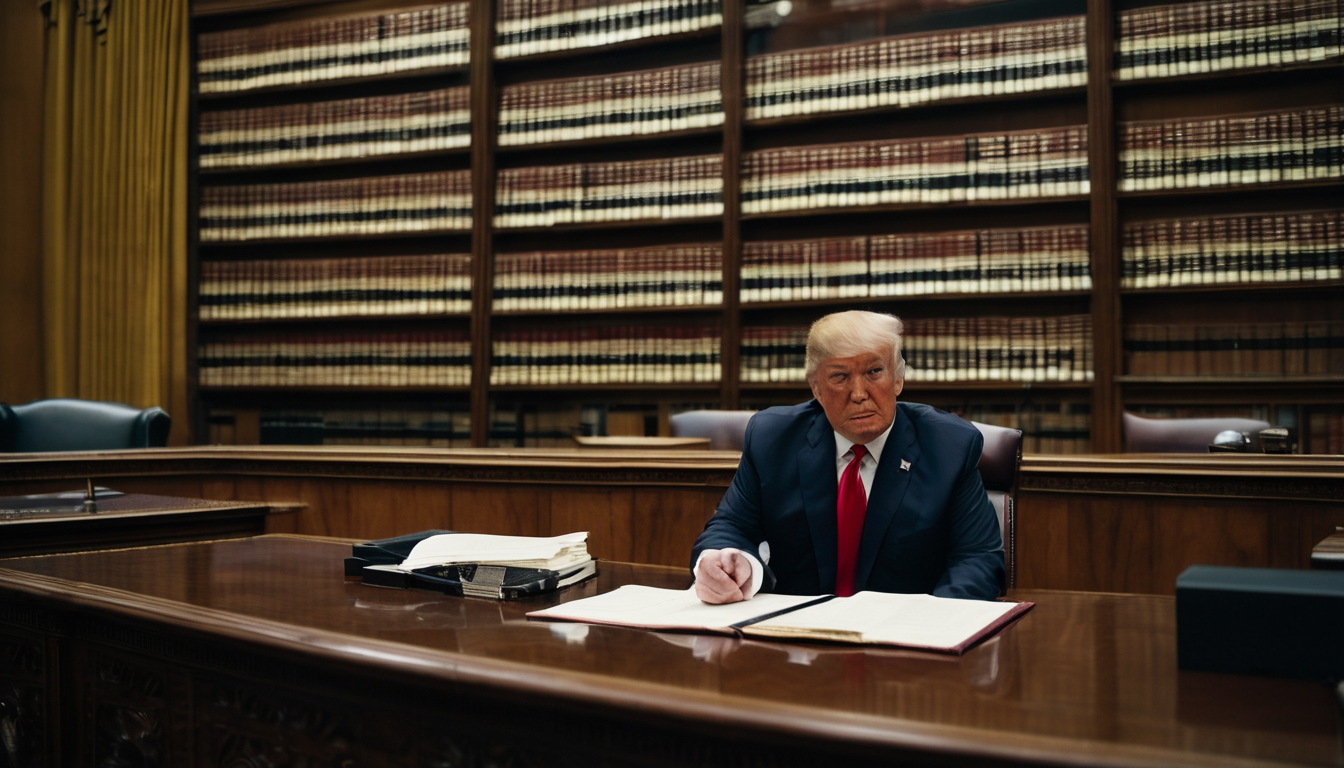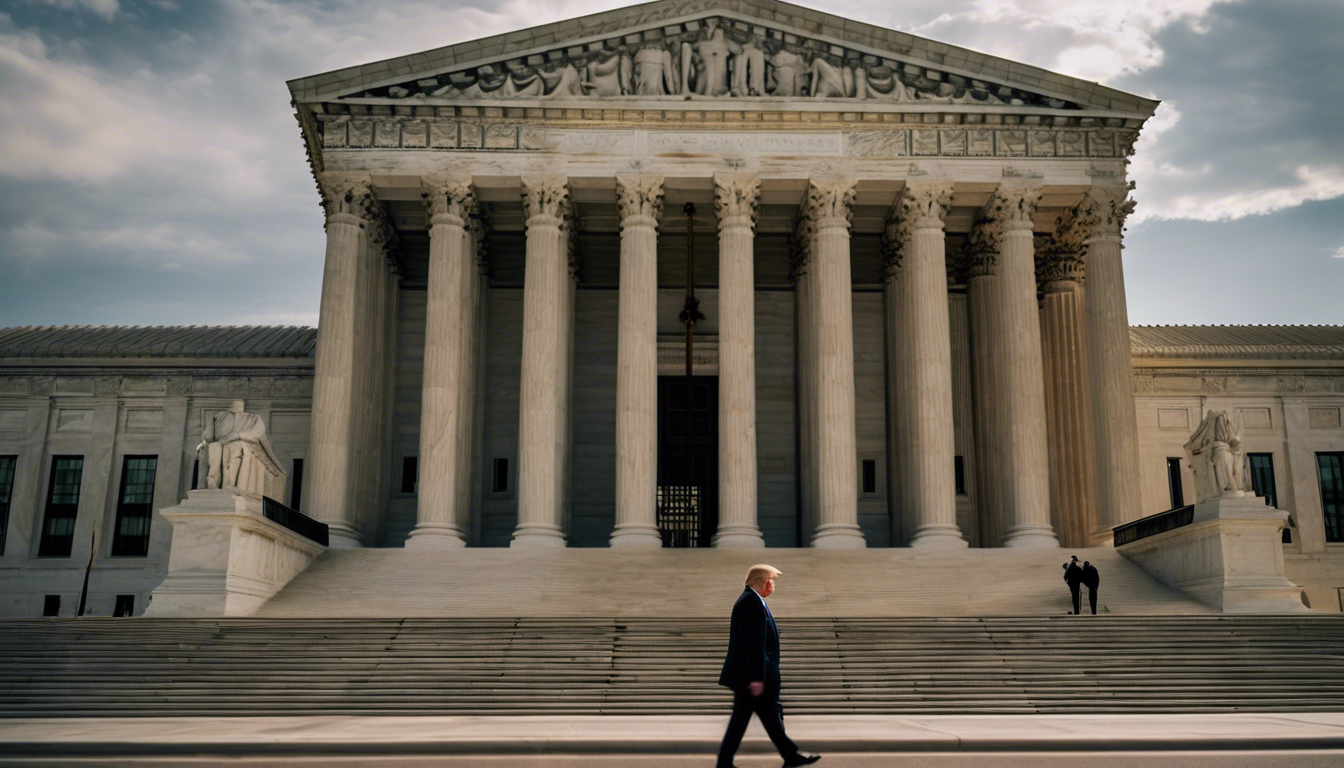
The Trump administration has filed a petition with the Supreme Court, seeking to reverse an appeals court ruling that deemed most of President Donald Trump’s tariffs as illegal under federal law. This move underscores the ongoing legal battle over the president’s trade policies.
Background
The dispute stems from the U.S. Court of Appeals for the Federal Circuit, which ruled in April that the 1977 International Emergency Economic Powers Act (IEEPA) did not grant the president the authority to impose tariffs without Congress. The court found that the tariffs implemented by Trump were an illegal use of this emergency powers law.
The administration has been deploying tariffs extensively since taking office, citing national security as justification. This legal challenge is part of a broader set of lawsuits questioning the legitimacy and legality of Trump’s trade actions.
Trump’s use of tariffs has been a contentious issue, with critics arguing that it harms small businesses and raises import costs, while supporters claim it protects American industries and secures better trade deals with foreign nations.
Key Developments

The government’s petition to the Supreme Court highlights the tension between executive power and congressional authority. Specifically, Solicitor General D. John Sauer argues that the appeals court decision undermines the president’s ability to negotiate trade agreements.
- Trump administration filed a petition with the Supreme Court.
- Seeking to reverse a ruling from the U.S. Court of Appeals for the Federal Circuit.
- The ruling found Trump’s tariffs to be an illegal use of the International Emergency Economic Powers Act.
- President Trump is hoping to secure a favorable ruling before upcoming trade negotiations.
NPR has reported that the administration wants to expedite the Supreme Court’s review, requesting that arguments be heard in early November. This urgency reflects the administration’s need for clarity on its powers and to minimize uncertainty for ongoing trade discussions.
Industry/Market Context
The legal challenge has significant implications for global markets and trade policies. Critics argue that tariffs have raised import costs, harming small businesses and consumers. They also risk disrupting supply chains and triggering retaliatory tariffs from other countries, potentially leading to trade wars.
Supporters, including the administration, counter that tariffs are necessary to protect American industries and enforce fair trade agreements. They argue that imports from countries like China and Mexico have been detrimental to U.S. economic interests and that tariffs are justified to level the playing field.
Revenue from tariffs has been substantial, totaling $159 billion by late August 2025, more than double the amount collected at the same point the previous year. This influx highlights the financial impact of tariffs on the U.S. Treasury and on importers across various sectors.
Implications & Risks
Should the Supreme Court uphold the appeals court’s ruling, it could restrict the president’s ability to use emergency powers for trade purposes. This outcome would represent a significant change in U.S. trade policy and potentially require the government to refund tariffs collected under scrutinized measures.
On the other hand, if the Supreme Court rules in favor of the administration, it could affirm the president’s broad powers under IEEPA, setting a precedent that could influence future trade actions. This could have far-reaching consequences for U.S. trade relations and international diplomacy.
The uncertainty created by this legal battle threatens to undermine confidence in U.S. trade policies and could prolong market volatility. Foreign investors and businesses may hesitate to make long-term commitments in the face of this legal ambiguity.
What’s Next

The Supreme Court’s decision on whether to hear the case is likely to come within the next few weeks. If the court agrees to take up the matter, it would schedule arguments for early November, as requested by the government. The outcome of these arguments will determine the direction of Trump’s trade policies and their compliance with federal law.
In the meantime, businesses affected by tariffs continue to navigate a complex legal and economic landscape. The legal challenge has added to the uncertainty already created by the president’s varied and sometimes contradictory trade actions.
Regardless of the Supreme Court’s decision, this case highlights the ongoing tension between presidential authority and congressional oversight in trade matters. The resolution of this dispute will provide valuable insights into the balance of power between the branches of government in the context of U.S. trade policy.
The administration’s pursuit of a Supreme Court ruling underscores the high stakes involved in this legal battle. The outcome will not only affect Trump’s ability to implement specific tariffs but also set important precedents for future presidents and their trade policies.






